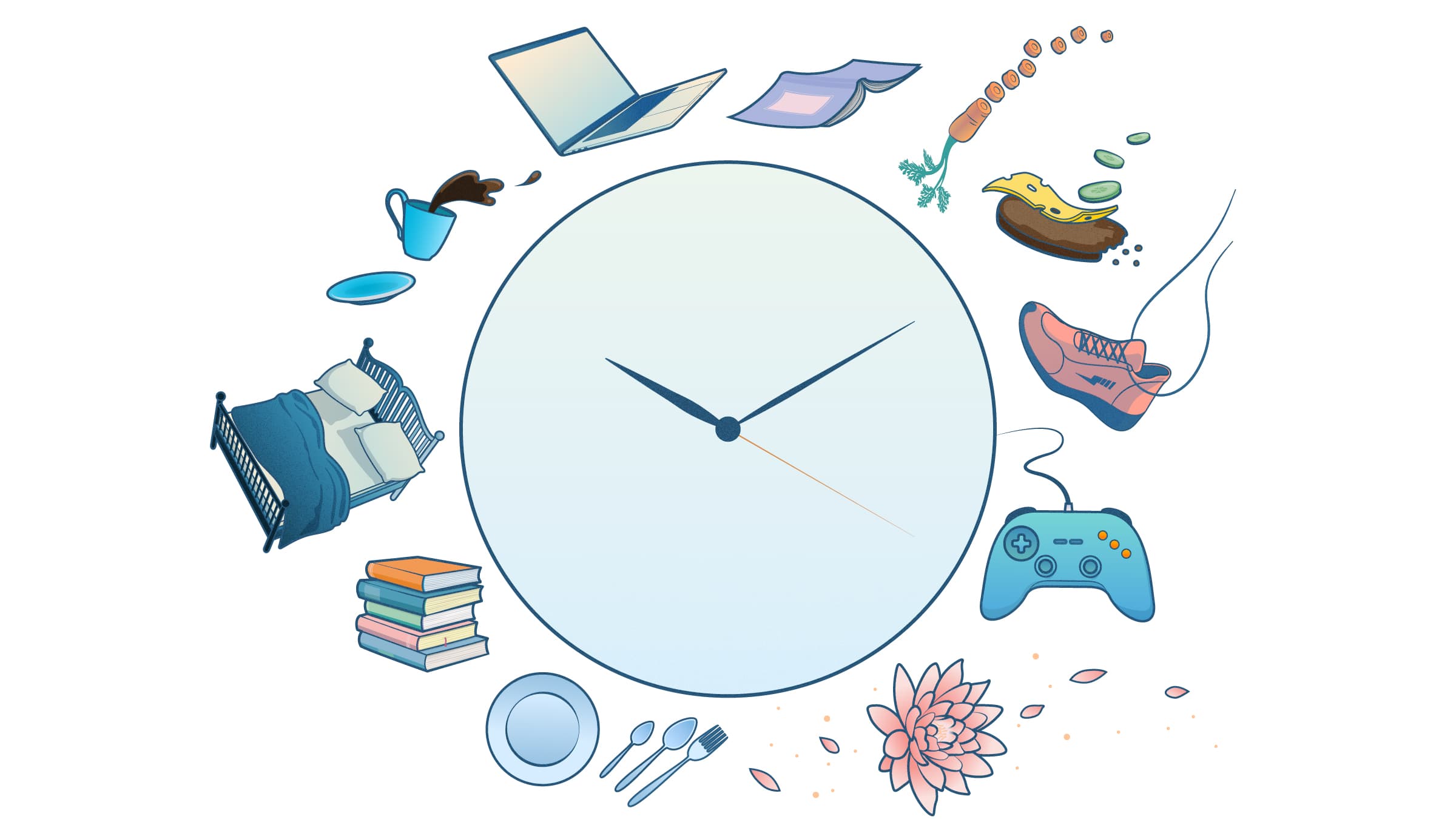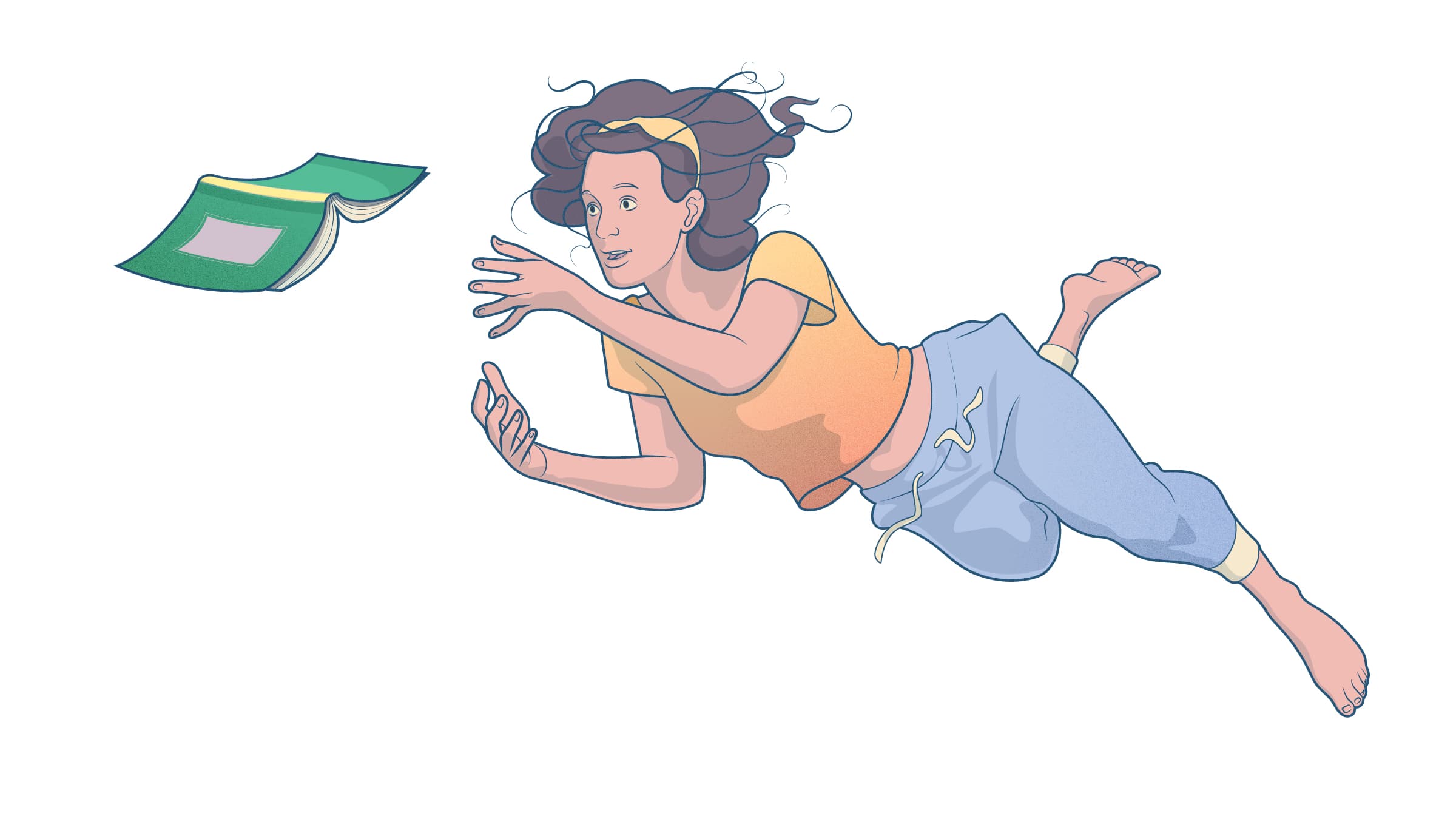
So you’ve learned about habits and you’re working on change. You’ve designed a window for sleep regularity and you’re in your pursuit for the amount of hours that’s best for you. If your commitment is firm, you are taking control of your sleep situation. That is amazing progress.
Change is a challenge. If it hadn’t been, there wouldn’t be any tobacco companies still standing and people would exercise more. Change happens gradually and not without your consent.
With that said, you’re here now. So today, we’ve compiled a holistic view on sleep hygiene together with Martin Reed, a day’s cycle of how to set you up for a good night’s sleep. It’s a summary of things we’ve already said, but wrapped into an overall package that brings you full circle to a typical day where you’re aware of your sleep hygiene.
Being Sleep Cycle, it makes sense for us to start with the morning. You wake up and get up at the same time, no matter if it’s a weekend or not. You don’t stray in bed. As soon as you’re able, you climb out to face the day.
When you go about your morning, take a moment and reach out to yourself. Do you feel rested? Do you feel energised? Give it an hour or so after you woke up, and then check in. Your body is likely to give you a reliable answer.

Get half an hour’s daylight, at least. Try to catch it before lunch. It resets your body clock and sets you up for sleep when the evening comes.
Eat regularly. Exactly what that means for you, is your call. But your body loves regularity when it comes to food as well. You don’t want to leave it guessing when the next meal’s coming.
Drink water throughout the day. Signs of dehydration are in some ways similar to fatigue, so you don’t want to confuse the two and certainly not mix them up.
Once you’re past lunch, don’t drink coffee. Even twenty four hours after your last cup, there’s still some of the stuff left in your body. So be modest about this healthy, but not great for sleep, stimula. If you’re a heavy coffee drinker, you might have a few days of headache and nausea as your body craves coffee at times it used to get it. It’ll pass. Wear it out. It’s worth it.
Fit in half an hour of low intense exercise every day. You don’t need to go running or visit the gym. To benefit from exercise, just engage in something that gets your heart going. A walk will do.

When the evening comes, engage in activities you enjoy, that help you relax. You know better than us what those are for you. Anything that calms your mind and lets you be receptive to sleep signals, works.
Keep your place dark. Fade the lights, turn them off if you don’t use them. Shade and shadow helps your body know that sleep is coming.
If screens are important to you, whatever you use them for, make it serene and meditative and preferably an earlier part of your evening ritual. If you’re using Sleep Cycle, remember our advise. When bedtime comes, turn it on, put it away and forget about it.
Go to bed at your earliest possible bedtime, unless you’re not tired. If you aren’t, wait until you are. Time in bed is for sleep. Only stay away from the bed if you’re not sleepy yet. Engage in something quiet and calm and wait for sleep to come.
Because it will, always. Your friend the sleep drive will make sure of that. There is no scenario where you won’t fall asleep. Listen to the signals of sleep. Help your sleep drive, and it will help you back.
Best, Sleep Cycle with Martin Reed from Insomnia Coach®
BRIEFLY
Build a healthy set of habits that take you through the day, and find an evening ritual that’s relaxing to you. Good habits help your sleep drive prepare you for sleep and keeps your signal system open to let you know when it’s time to sleep. There’s no scenario where sleep won’t happen. Only difference is timing and if you treat yourself right, your chance of perfect timing increases.


